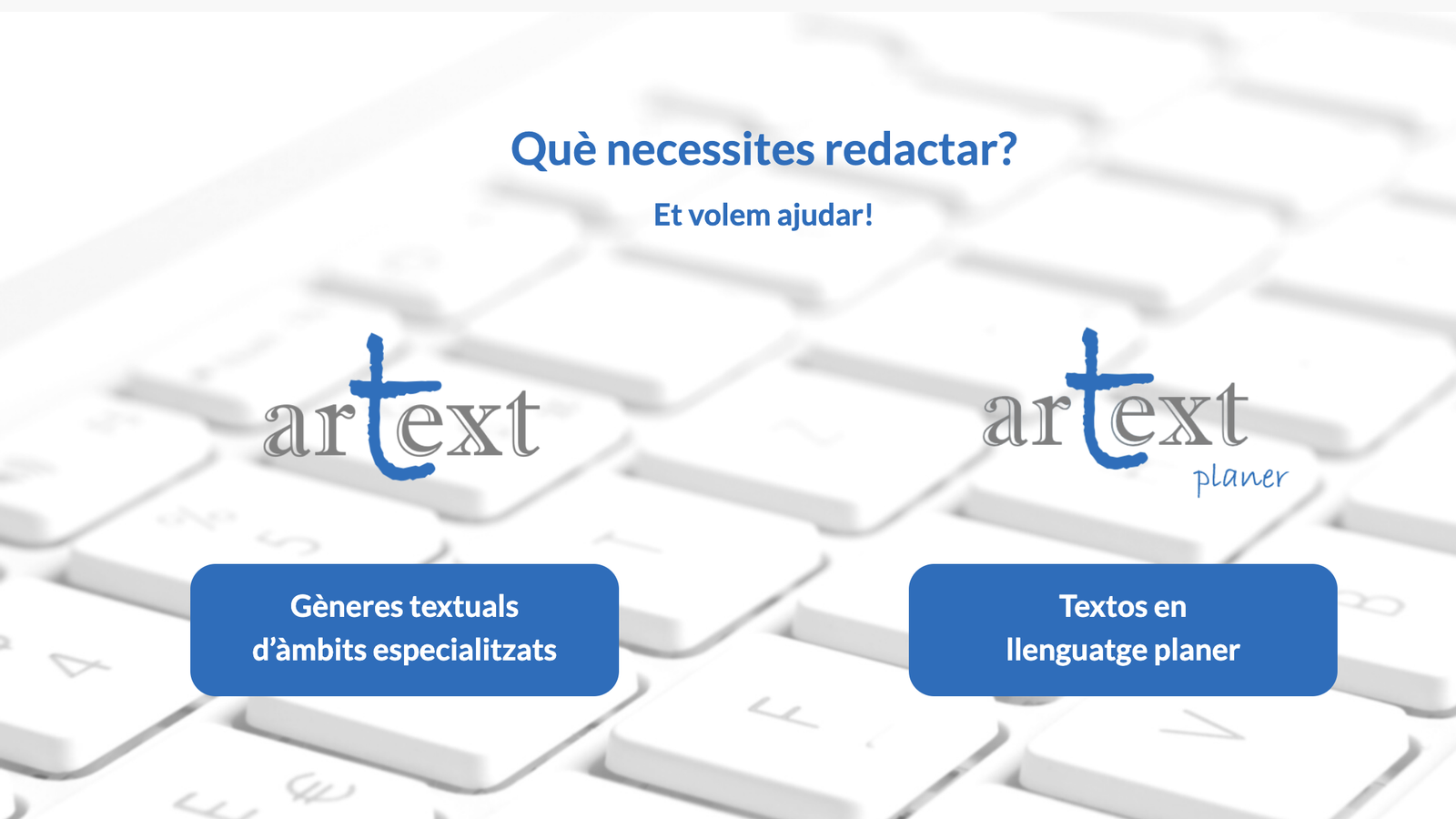arText, the new AI tool that helps you write specialized texts in Catalan
The platform, which has financial support from the Government and the Generalitat of Catalonia, is available online for free.


PalmArText, the first Catalan text editor that helps people write specialized texts and plain language texts, always respecting dialectal variations, is now a reality. It's an online tool based on symbolic natural language processing (NLP) techniques, a branch of artificial intelligence. Iria da Cunha, professor at the National University of Distance Education (UNED) and project director, and M. Amor Montané, professor at the University of Barcelona (UB) and coordinator of arText in Catalan, explained the Catalan version of this assisted editor, developed by UNED and financially supported by the Catalan government and the Generalitat de Catalunya.
In the case of specialized texts, for example, users can choose from different fields: Public Administration, Medicine, Tourism, and Academics. And within each of these options, they are further broken down, so that everyone can find what they need. For example, the prototypical sections that have allegation, instance, etc. And if the user clicks, examples of these appear, which they can attach to the tool's processor and, from there, work on their own text. Once completed, the tool reviews it and makes discursive, morpho-syntactical, and lexical suggestions that allow for improving the final result.
Four years of Catalanization
The arText project in Spanish began in 2015 with a Leonardo grant from the BBVA Foundation and has subsequently expanded with funding obtained from various calls for proposals from the Ministry of Science and Innovation's National Plan and with the support of an interuniversity, international, and interdisciplinary team, including experts in linguistics, terminology, and computer science. The adaptation of arText into Catalan began in 2021, when the project design began and was finally formalized with a funding partnership between the Catalan government and the Generalitat de Catalunya.
The project to convert arText into Catalan was carried out at the UNED (National University of Catalonia), in the Faculty of Philology, and within the framework of the Actualing research group, in collaboration with the IULATERM group of the Pompeu Fabra University's Institute of Applied Linguistics. The UNED-Balearic Islands center has collaborated with the project through a collaboration agreement signed with the Institute of Balearic Studies (IEB) a few months ago.
The presentation of the tool was attended by the director of the Institute of Balearic Studies, Llorenç Perelló, who stated that "it is very important that the Catalan language be present in computer and technological tools, such as arText, to ensure its survival and intergenerational transmission." "It is important to highlight the symbolic value of a state university (UNEDD) being involved in promoting the languages of the Spanish state," said Perelló. Vanessa Bretxa, Director General of Access to Knowledge and Promotion of the Use of Catalan, also attended the event. "From the Department of Linguistic Policy of the Government of Catalonia, we celebrate that arText in Catalan is now a reality. It is a tool that not only facilitates writing in plain language, but also incorporates the dialectal richness of Catalan and, therefore, will be useful across the entire linguistic spectrum." Also participating were Judi Vega and Judit Vega, director of the UNED center in the Balearic Islands. "UNED is an essential tool for continuing to protect the Catalan language," she said.
